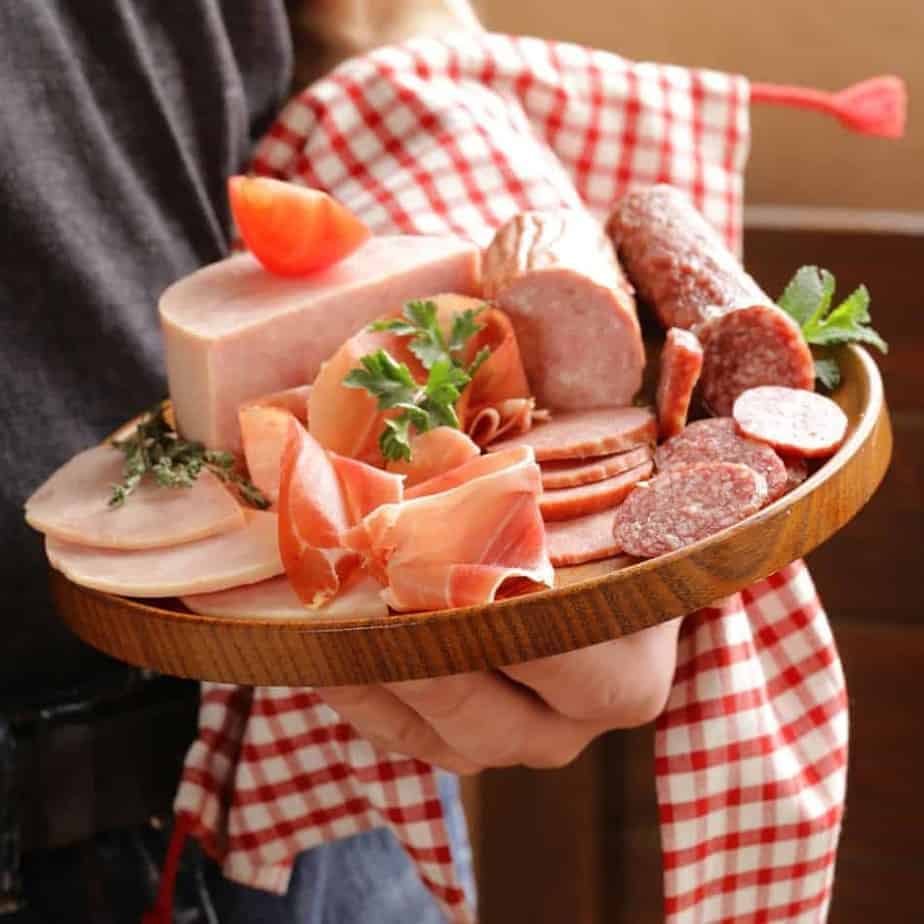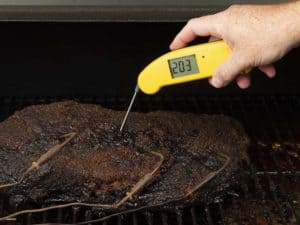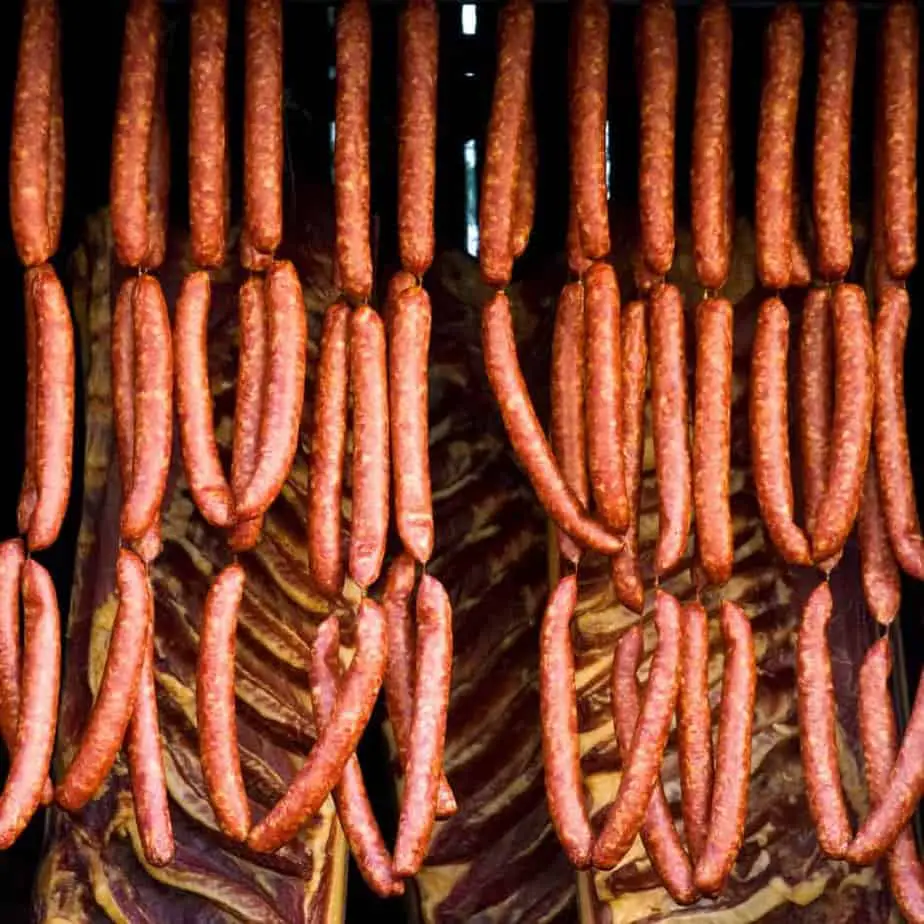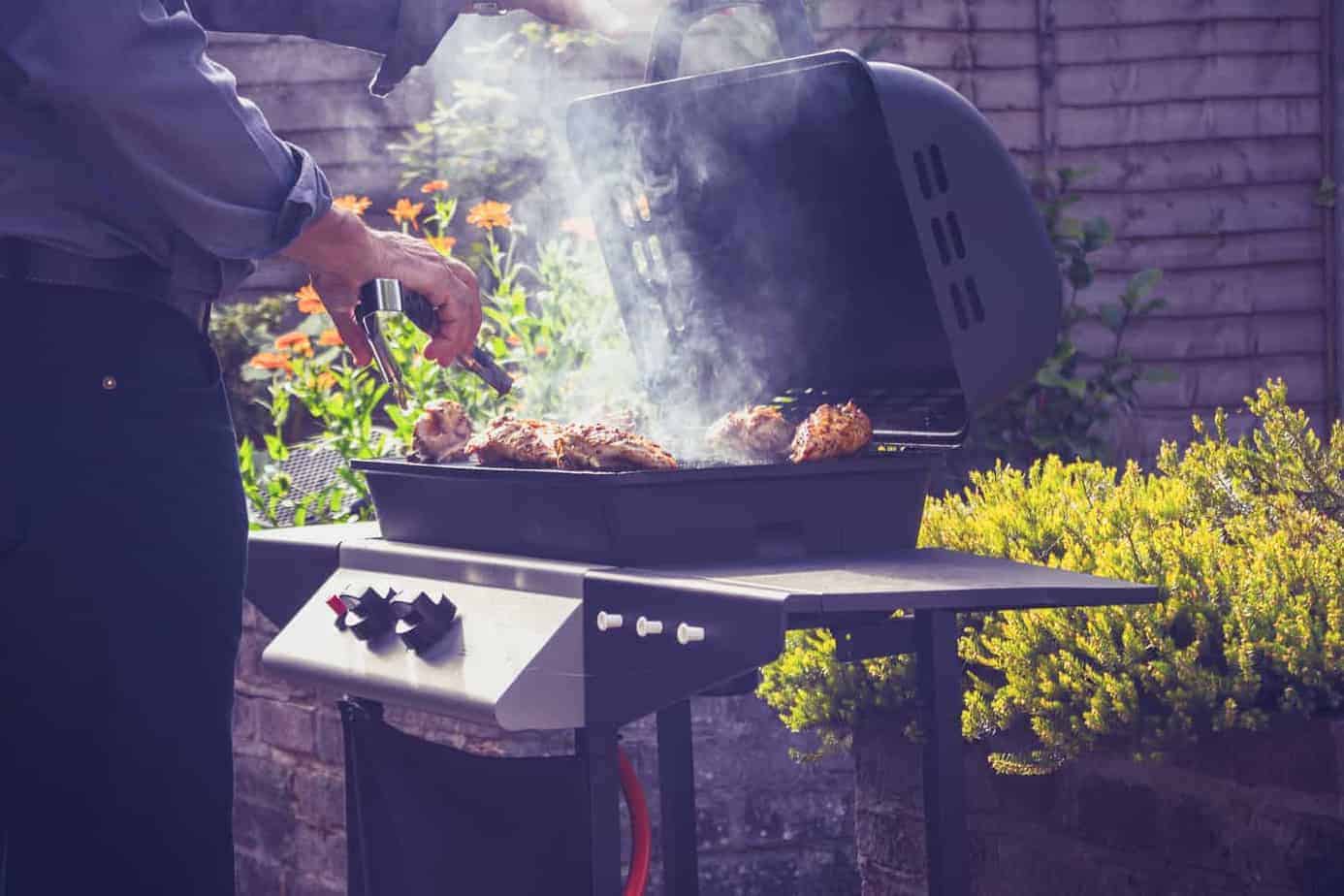Is Smoked Meat Bad For Your Health? The Answer May Surprise You
Disclosure: This post may contain affiliate links. If you use these links to buy something we may earn a commission at not additional cost to you. Learn more.
Like all great things, BBQ and smoked meats should be consumed in moderation. Some have suggested that BBQ poses a health risk to consumers, so I decided to do some research to see what all of the fuss was about. Here is what I discovered
Is smoked meat bad for your health? Recent studies suggest that smoked meats are healthier than grilled meats. The high heat from grilling causes potential risks when the flames interact with animal fat. Since smoked meats are prepared at lower temperatures, the same dangers are mostly avoided. There is also small risks from artificial smoked flavorings that added to some meats, but if eaten in moderation, the health risks are minimal.
Well, why are there conflicting ideas on the cancer risks of BBQ? A little exploration can hopefully bring some clarity.

Is Smoked and Grilled Meat Bad for Your Health?
First, an important distinction needs to be made—there is a big difference between smoked and grilled meats. Lumping both together ignores what causes possible carcinogens to be created when you cook meat.
Grilling meat causes two compounds that have been linked to possible cancer risks. These compounds are created due to the heat at which the meat is cooked.
- HCA. When animal products come in contact with hot surfaces—such as on a grill– HCAs are formed. HCA is short for heterocyclic amines. These amines have the potential to change in DNA that could cause increased cancer risk.
- PAH. These are formed from the smoke of animal fats that have dripped onto coals or flames. The smoke that is produced contains harmful substances that can land on the food. PAH is short for polycyclic aromatic hydrocarbons, chemicals that can also similar changes in DNA.
Smoking meat does not create either of those compounds because HCA and PAH are caused by an interaction between meat and heat. Instead, the meat is typically cooked to a temperature range between 180-220 degrees. Or, as slow- smoking experts say, it needs to be cooked “low and slow.”
Research that has been done on HCAs and PAHs has been done on laboratory animals, such as rodents. Numerous studies have found that these chemicals caused them to develop tumors in multiple organs, including the breast, colon, and prostate. That doesn’t sound fun, does it?
However, you also need to consider the amount the rodents were fed. As the National Cancer Institute points out
“the doses of HCAs and PAHs used in these studies were very high—equivalent to thousands of times the doses that a person would consume in a normal diet”
The takeaway from this is that the headlines lump grilled and smoked meat together; however, the risk, small as it is, has been attributed to grilled meat.
What About Smoke Flavoring?
Some studies have shown that liquid smoke flavoring could be carcinogenic. This is due to how liquid smoke is produced. The vapor from wood smoke is captured and condensed. The resulting liquid has some PACs. Again, the amounts of PAC are small.
To reach the safety limits of PAC consumption, you would have to drink 3 small bottles of hickory-smoked flavoring before you went over the limit of what is considered safe.
Why Does Smoked Meat Upset My Stomach?
Nobody wants shooting pain or nausea in their guts after eating their favorite food. So, what can be done to prevent it? Does it mean you have to give up BBQ?
The culprit could be meat that has spoiled.
If it has been out too long, or if the temperature of the storage area reached above 40 degrees, it could have spoiled. If you are storing meat in a refrigerator, you might want to get a thermometer. Sometimes the temperature setting can be accidentally adjusted, or an older machine might not keep food as cold as you like.
If the meat has spoiled, you might develop some other symptoms of botulism, such as
- Diarrhea
- Vomiting
- Double or blurred vision
- Constipation
- Double or blurred vision
If this happens, you just need to wait until the symptoms disappear, but you should be able to enjoy ribs again.
For more information, check out my post on the 4-hour rule in BBQ for more information on how to cook and store your food safely.
You got older.
Acid reflux might be the culprit. But wait, you say, I’ve never had that before. That could be true; however, as we all get older, our sphincter pylori (the one that keeps stomach acids from reaching your esophagus) no longer closes properly. These acids then irritate the lining of your esophagus, hence the phrase acid reflux.
Some people stop eating the food entirely while others eat in moderation and take strong antacids when they eat. Others just continue to eat, take antacids daily, and hope the problem will go away.
You should be able to enjoy those ribs if you eat in moderation and take antacids as a precaution.
You Just Ate Too Much
Maybe you were meat drunk and couldn’t stop eating. This is what Daniel Vaughn, Texas Monthly Barbecue Editor, calls it when you just can’t stop yourself from one more rib. He describes it this way
“an altered state brought on by meat alone, once protein has ceased its purpose of satiety, and moved into the realm of heroin for the stomach”
It’s How You Cooked It
Sometimes the cause is in the cooking. Some people notice that if they use wood chips, changing to something like applewood helps. Others cut out wood altogether. Some people may actually be allergic to the smoke flavoring added to food.
Worse-Case Scenario
Sometimes this can be a sign of a more serious stomach problem. Unfortunately, this is difficult to diagnose without seeing a doctor. What are some signs it might be cause for concern?
- Constant bloating
- Feeling full before finishing a meal
- Bloody stools
- Excessive fatigue
- Jaundice
You need to see your doctor if you experience these symptoms.

What Can I Do to Minimize Risk?
First, choose smoked meats over grilled. The dangerous compounds are more likely to be found in grilled meats as compared to smoked.
Second, you might want to consider using less liquid smoke flavoring (or none at all).
You could also choose to change cooking methods if you are grilling. These include
- Cook your meat in the microwave first so that you reduce the time meat is in contact with heat. If that doesn’t sound appetizing, then
- Turn the meat more often. Apparently, this reduces the amount of HCA/PAH produced. If interested in how that works, follow the link to the study
- Remove charred pieces of the meat and don’t use meat drippings to make gravy
Remember that these tips are for grilled meat. If you smoke meat, you don’t need to worry about them as much. Think of them as tips for your grilling friends.
A Recent Breakthrough
Several years ago food researchers wondered if the technology that car manufacturers used to reduce pollutants could be used to decrease harmful compounds created by preparing meat. A group of researchers at the University of Reading in Great Britain discovered that the material used by carmakers would also work to reduce PAHs by 97 percent.
After creating a filtering system that would work for preparing meat, the researchers, led by Jane Parker, discovered that not only did their filter reduce possibly carcinogenic compounds, it also increased the taste of the food. A panel of experts determined that food cooked through PST (Pure Smoke Technology) tasted better. The experts said compared to PST cooked food, meat prepared without the filter scored higher
“when it came to the undesirable flavour qualities like ‘ash tray’ and ‘acrid smoke’”
Final Thoughts
So, what’s a carnivore to do? From what I can tell, it takes high exposure over a long period of time to have significant health risks. So stop worrying and just enjoy your smoked and grilled meats and cut back or eliminate smoke-based flavoring. If you eat BBQ your moderation, you shouldn’t have much to worry about. And tell your vegetarian friends to enjoy their tofu.






